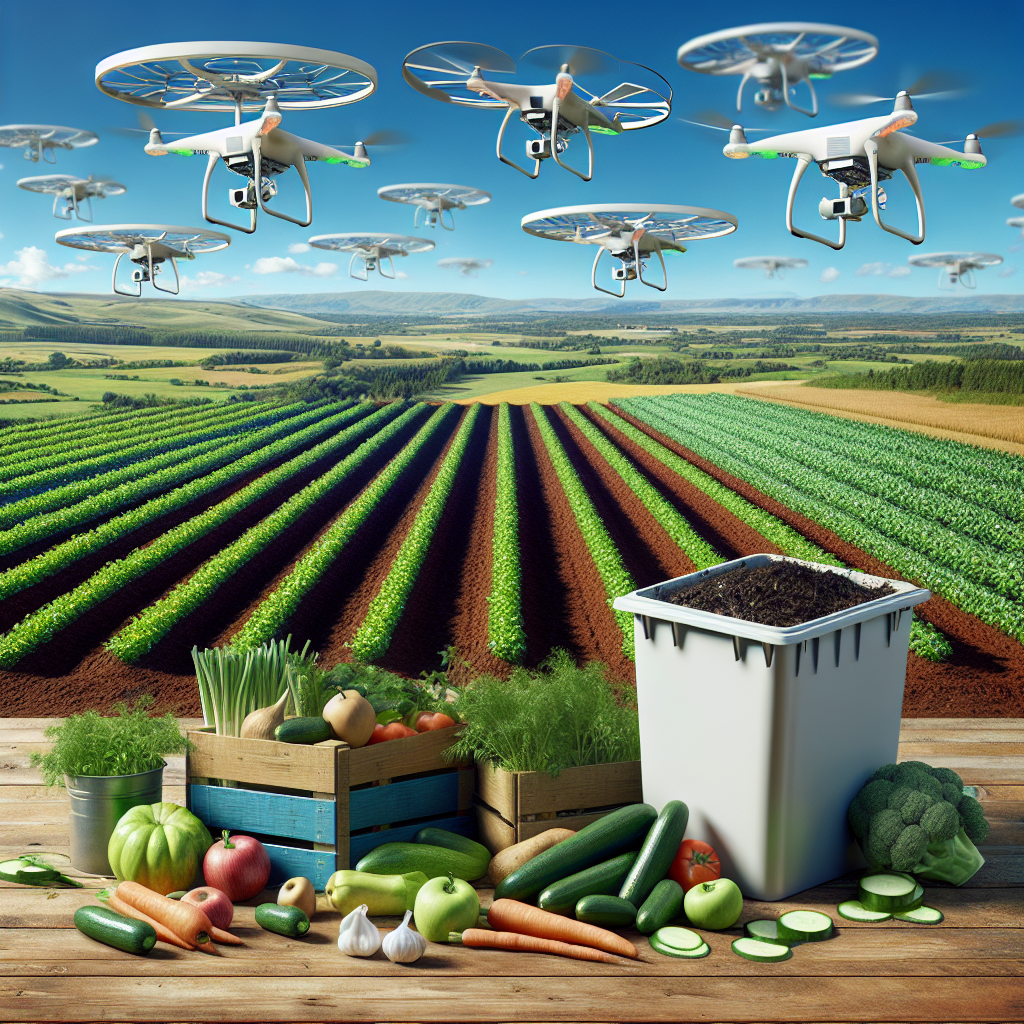Food waste is a significant issue that affects the global food supply chain, leading to economic losses and environmental harm. According to the Food and Agriculture Organization of the United Nations, around one-third of all food produced for human consumption is lost or wasted each year. In agriculture, food waste can occur at various stages, including production, processing, distribution, and consumption.
Fortunately, advancements in technology, particularly artificial intelligence (AI), are providing innovative solutions to reduce food waste in agriculture. AI-powered solutions are being used to optimize crop production, improve supply chain efficiency, and enhance food preservation techniques. These technologies are helping farmers, food manufacturers, and retailers make informed decisions to minimize waste and improve sustainability in the food industry.
One of the key ways AI is being used to reduce food waste in agriculture is through predictive analytics. By analyzing data from various sources, such as weather patterns, soil conditions, and crop yields, AI algorithms can help farmers predict potential issues that may lead to food waste. For example, AI can forecast crop diseases, pest infestations, and weather-related disasters, allowing farmers to take proactive measures to minimize losses.
AI-powered solutions are also being used to optimize crop harvesting and storage processes. By using computer vision technology, AI algorithms can analyze images of crops to determine their ripeness and quality. This information can help farmers schedule harvest times more efficiently, reducing the likelihood of crops spoiling in the field. Additionally, AI can monitor temperature and humidity levels in storage facilities to ensure optimal conditions for food preservation.
Furthermore, AI is being used to improve supply chain management in agriculture. By analyzing data on transportation routes, inventory levels, and demand forecasts, AI algorithms can help food manufacturers and retailers optimize their distribution networks. This can reduce the amount of food that goes to waste due to overstocking or spoilage during transit.
In addition to reducing food waste in agriculture, AI-powered solutions are also being used to enhance food preservation techniques. For example, AI algorithms can analyze the chemical composition of foods to determine their shelf life and recommend appropriate storage conditions. This can help food manufacturers and retailers minimize spoilage and extend the lifespan of perishable goods.
Overall, AI-powered solutions are playing a crucial role in reducing food waste in agriculture by enabling farmers, food manufacturers, and retailers to make data-driven decisions that improve efficiency and sustainability. As the technology continues to advance, we can expect to see even greater improvements in food waste reduction across the food supply chain.
FAQs:
Q: How does AI help farmers reduce food waste in agriculture?
A: AI helps farmers reduce food waste by analyzing data on crop production, weather patterns, and soil conditions to predict potential issues that may lead to waste. Additionally, AI can optimize crop harvesting and storage processes to minimize spoilage.
Q: What are some examples of AI-powered solutions for food waste reduction in agriculture?
A: Some examples of AI-powered solutions for food waste reduction in agriculture include predictive analytics for crop production, computer vision technology for crop harvesting, and supply chain management optimization.
Q: How can AI improve food preservation techniques in agriculture?
A: AI can improve food preservation techniques by analyzing the chemical composition of foods to determine their shelf life and recommend appropriate storage conditions. This can help minimize spoilage and extend the lifespan of perishable goods.
Q: What are the benefits of using AI-powered solutions for food waste reduction in agriculture?
A: The benefits of using AI-powered solutions for food waste reduction in agriculture include improved efficiency, reduced economic losses, and enhanced sustainability in the food industry. Additionally, AI can help farmers and food manufacturers make informed decisions to minimize waste and optimize resource utilization.

